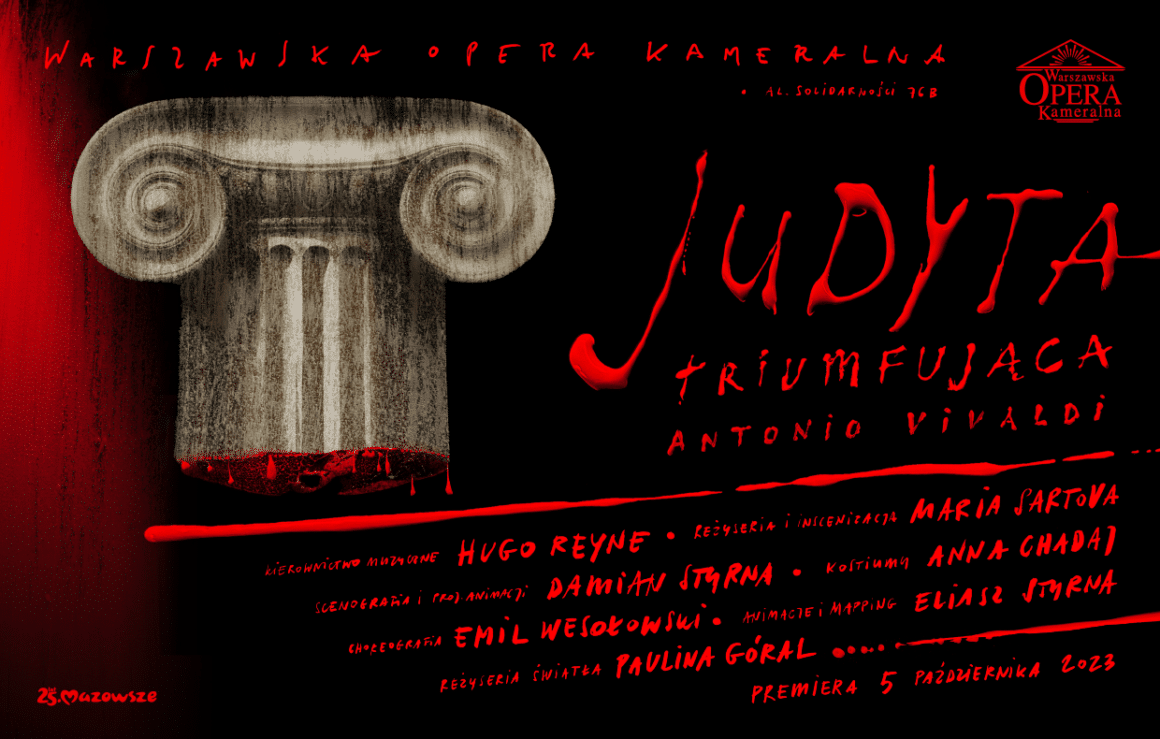Theatre of the Warsaw Cahmber Opera
Antonio Vivaldi
Judith triumphant
over the barbarians of Holofernes
Composer | Antonio Vivaldi
Libretto | Giacomo Cassetti
Premiere | 5’th October 2023
Music director: Hugo Reyne
Staging and director: Maria Sartova
Set design and animation: Damian Styrna
Choreography: Emil Wesołowski
Costumes: Anna Chadaj
Lighting director: Paulina Góral
Multimedia: Eliasz Styrna
Assistant music director : Kuba Wnuk
CAST:
Judith | Weronika Rabek, Sonja Runje, Orysia Guga
Holofernes | Michal Marhold, Kamil Pękala
Vagaus | Małgorzata Panek, Sylwia Stępień
Abra | Joanna Radziszewska, Joanna Moskowicz
Ozias | Jadwiga Postrożna, Marta Mika
Vocal Ensemble of Warsaw Chamber Opera
Chorus Master – Krzysztof Kusiel-Moroz
Ancient Instruments Ensemble of Warsaw Chamber Opera
Musicae Antiquae Collegium Varsoviense
Conductor
Hugo Reyne
The Assyrian forces are besieging the Israeli town of Bethulia. The city bravely defends itself, even though its fall seems inevitable. Judith – a beautiful Jewish widow – infiltrates the enemy camp. She seduces Holofernes – the commander of the invading army, and when he falls asleep, she decapitates him. The enemy is humiliated and defeated!
In 1716, composer Antonio Vivaldi began to musically illustrate the story of the fearless Judith. The Venetian Republic was at war at the time, defending itself against the overwhelming forces of the Ottoman Empire. In his oratorio, the composer metaphorically referred to the situation of the fighting Serenissima: he hid the Venetian Republic under the guise of the biblical Judith, while Holofernes symbolized the weakening Turks.
Vivaldi chose the oratorio genre for a reason – its rich instrumentation, characteristic of this musical form, allowed him to present the exceptional skills of the Ospedale della Pietà, a girls’ orchestra that he led.
As a talented opera composer, Vivaldi skillfully used the narrative potential hidden in the story of the fearless woman. As a result, Judith triumphant combines rich instrumentation with a vivid narrative corresponding to the emotional range found in opera.


